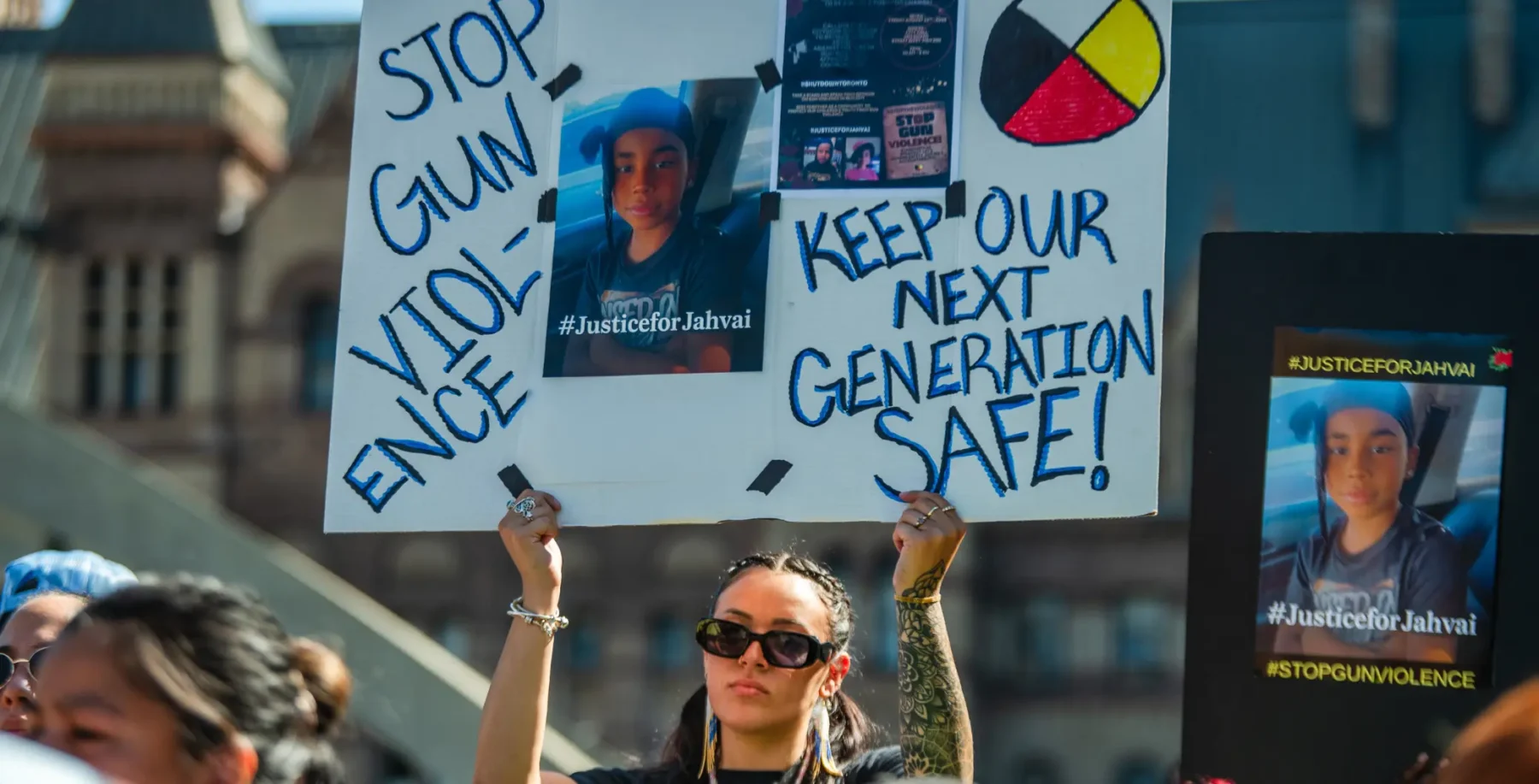
Members of the Indigenous Maya Q’eqchi’ community of El Estor, Guatemala, were in Toronto recently pursuing three separate civil suits against Hudbay Minerals and its subsidiary, CGN, over alleged gang rapes and other human rights abuses at the Canadian company’s former Fenix mine.
The Hudbay cases serve as a significant wake-up call to an industry that could potentially face more risk and liabilities in Canadian courts for violations in foreign countries.
One lawsuit alleges the gang rapes of 11 women in January 2007 during forced evictions of members of the Maya Q’eqchi’ community of Lote Ocho at the hands of security personnel, police and military hired by CGN. A second, filed by Angelica Choc, alleges security forces hired by the company violently hacked with machetes and shot to death Choc’s husband, Adolfo Ich, a respected community leader and school teacher who opposed the mine, in 2009. The third, filed by German Chub, alleges CGN’s chief of security shot him at close range in an unprovoked attack, paralyzing him from the chest down.
The lawsuits, which are slowly making their way through Ontario Superior Court, are seeking a total of $15 million in compensatory and $64 million in punitive damages.
More than 50 per cent of the world’s publicly listed exploration and mining companies have Canadian headquarters. Canadian mining assets abroad total some $153.2 billion. But until the Hudbay lawsuits were accepted by an Ontario court in 2013, there was little or no recourse for communities adversely affected by the transgressions of Canadian companies operating abroad.
“We were very happy and thankful when we found out that our lawsuits were accepted and that we are the very first [mining-affected] Indigenous community ever to be heard in another country,” says Choc, speaking by phone with NOW from Toronto prior to her return to Guatemala last week. “We wouldn’t get a fair trial in our own country. We knew this would be a very difficult and long journey to seek justice.”

Choc came to Toronto to offer support to the first group of women testifying in pre-trial hearings related to the first suit. Unlike Choc, whose case has received widespread coverage, most of those women have never left Guatemala before, let alone travelled on a plane or experienced the Canadian cold.
Every day for the last few weeks, the women got up early to make the trip downtown with their lawyers to the 20th storey of the TD North Tower and the offices of Hudbay lawyers Fasken Martineau, a leading international business law and litigation firm.
And each day the women were questioned separately for up to seven hours by Hudbay’s team. “These have been very hard and stressful days for them to be sitting across the table from lawyers who can ask you anything they want, especially about something so painful,” says Cory Wanless, a lawyer with Klippensteins Barristers & Solicitors, the firm representing the plaintiffs.
FIGHT OVER LAND RIGHTS
The conflict between communities and Hudbay has its roots in Guatemala’s bloody civil war, during which Maya Q’eqchi’ communities were driven off land that is now considered part of the Fenix mining project. In or around September 2006, Maya Q’eqchi’ farmers and other members of the community reclaimed several small parcels by moving onto and reoccupying them. These farmers view their reclamation as a rightful and legal repossession of historic Maya Q’eqchi’ territory unjustly taken from them and their families during the war.
“This, in essence, is really a conflict over land,” says Wanless. “Our clients are still on land that they don’t own. The forced eviction that happened in 2007 could happen again tomorrow.”
Even with the lawsuits underway in Canada, the plaintiffs say the community continues to suffer intimidation. Choc and her family have had to stay in different places as a result of a number of incidents, including the firing of shots outside her home in September 2016.
Angelica Choc, along with German Chub, are scheduled to return to Toronto in early 2018 to be questioned by Hudbay’s team of lawyers. At the same time, they are pursuing a separate criminal trial in Guatemala against Mynor Padilla, former head of security of Hudbay/CGN.

Christian Pena
Angelica Choc says her husband was killed by security forces over his opposition to Toronto-based Hudbay Minerals’ Fenix mine in Guatemala.
LANDMARK CASES
The plaintiffs allege that Hudbay Minerals failed to take adequate precautions to prevent human rights abuses by its security personnel. Their claims state that Hudbay “negligently authorized” the use of heavily armed and undertrained security personnel at its Fenix mine – in some cases using unlicensed and illegal weapons. And that Hudbay was aware that security personnel employed by CGN had in the past used “unreasonable violence” against communities opposed to the mine.
The company had initially argued that it should not be held legally liable for abuses that occurred during the forcible removal of villagers in 2007. (The removal of villagers was sought by the mine’s previous owner, Canadian mining company Skye Resources, which was later bought and merged with Hudbay. The company then sold its stake in CGN shortly after the lawsuits were first filed, between 2010 and 2011. And in 2013 attempted to block the lawsuits from being heard in Canada.)

James Rodriguez
Police, military and security forces burned homes during a forced eviction of Maya communities near Fenix mine in Guatemala in November 2007.
But an Ontario court ruled in 2013 that the company can be held legally responsible. Similar suits against other mining companies are now making their way through Canadian courts. “We are really hopeful that this is a trend,” says Wanless.
Many NGOs and critics of the mining industry have long criticized voluntary codes of conduct for Canadian corporations operating abroad. The Mining Association of Canada (MAC), among other organizations, are concerned that the lawsuits against Hudbay could cause a major shakeup in an industry that already feels over regulated.
But MAC vice-president of sustainable development Ben Chalmers says his group supports the idea of Canadian courts assessing which situations warrant trials here. “Our members take very seriously the obligation to act responsibly and to respect human rights.”
HUDBAY MINERALS RESPONDS
Hudbay was contacted on several occasions to clarify certain facts related to the allegations in these lawsuits. Scott Brubacher, director of corporate communications, declined to be interviewed but offered the following written statement:
“At this time these matters are part of a legal proceeding and are best heard there. Given the sensitive nature of the allegations, we recognize that some people will find it hard to reserve judgment until the facts are established. However, we hope that people will accept the facts are in dispute, the matter is before the courts and we should trust our legal process to deliver a just verdict based on the evidence.” The company released this statement after the lawsuits were first filed in March 2011.
Murray Klippenstein, lead lawyer for the plaintiffs, told a packed audience of supporters at an event at Friends House on November 23rd that the court-ordered release of some 19,000 internal company documents – including correspondence from the CEO’s desk in Toronto and minutes of board meetings – paints an incriminating picture. “We know what they did and we are going to bring that out.”
Speaking in their native Q’eqchi’ language, the women took turns offering words of thanks to the audience through their translator.
Says Wanless, “From the very beginning they were not worried what the end result would be. They were more interested in standing up and fighting back. One of the things I have learned from them is that there is beauty in the struggle.”
news@nowtoronto.com | @nowtoronto












